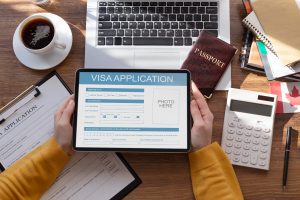Securing a study visa is a pivotal step toward pursuing your educational dreams in a foreign country. The study visa interview plays a crucial role in determining whether you are granted the opportunity to study abroad. To ensure you present yourself in the best possible light, this article provides a wealth of tips, strategies, and advice on how to prepare for and succeed in your study visa interview. By following these guidelines, you can approach the interview with confidence and increase your chances of obtaining the study visa you desire.
Table of Contents
Study Visa Interview Tips: How to Prepare and Succeed
Preparing for a study visa interview involves careful planning, self-assessment, and effective communication. Follow these comprehensive tips to enhance your interview performance:
Research the Interview Process
Before your interview, research the study visa interview process specific to the country you are applying to. Understand the types of questions typically asked, the format of the interview, and any specific requirements or documents you need to bring.
Understand Your Course and Institution
Be prepared to discuss the details of your chosen course and the institution you’ll be attending. Understand why you’ve selected this particular course, how it aligns with your academic and career goals, and why you’ve chosen to study in that specific country.
Practice Your Responses
Anticipate the questions the interviewers may ask and practice your responses. Craft concise and clear answers that highlight your passion for your chosen field of study and your genuine interest in experiencing the culture of the host country.
Showcase Your Financial Preparedness
Demonstrate that you have the financial means to support your education and living expenses abroad. Bring all necessary financial documents, including proof of funds, scholarships, and any sponsorship letters, to showcase your financial preparedness.
Address Potential Gaps
If there are gaps or inconsistencies in your application, address them proactively during the interview. Provide clear explanations for any lapses in your academic history or any changes in your plans.
Be Familiar with Your Application
Study your study visa application thoroughly to ensure that you are familiar with all the information you provided. This will help you respond confidently and accurately to questions about your application.
Dress Professionally
Dress in professional attire that is appropriate for the interview. Your appearance plays a role in creating a positive first impression and demonstrating your seriousness about your academic pursuits.
Maintain Eye Contact and Body Language
During the interview, maintain good eye contact with the interviewers and exhibit positive body language. Sit up straight, smile, and use gestures naturally to convey your enthusiasm and confidence.
Practice Mock Interviews
Consider practicing mock interviews with friends, family, or professionals who can provide constructive feedback. Mock interviews help you refine your responses, build confidence, and identify areas for improvement.
Research Current Events
Stay informed about current events in both your home country and the host country. Having knowledge about recent news and developments can demonstrate your genuine interest in the country’s culture and affairs.
Prepare Questions to Ask
At the end of the interview, you’ll likely have the opportunity to ask questions. Prepare thoughtful questions about the institution, course, or student life to show your eagerness to learn and engage.
Showcase Your Language Proficiency
If your study program is in a language other than your native tongue, be prepared to showcase your language proficiency. Communicate clearly and confidently to demonstrate your ability to succeed academically in the chosen language.
Stay Calm and Composed
On the day of the interview, stay calm and composed. Take deep breaths to manage any nervousness, and remind yourself of your accomplishments and reasons for pursuing this opportunity.
Be Authentic and Genuine
Authenticity is key to making a positive impression. Be yourself and share your genuine motivations for studying abroad and pursuing the chosen course.
FAQs
Ques 1. Can I bring additional documents to the interview?
Ans 1. Yes, you can bring additional documents to support your application, especially if they strengthen your case. However, ensure that you only present relevant and necessary documents to avoid overwhelming the interviewers.
Ques 2. What if I don’t understand a question during the interview?
Ans 2. If you don’t understand a question, don’t hesitate to ask the interviewer to repeat or rephrase it. It’s better to seek clarity than to provide an inaccurate or irrelevant response.
Ques 3. How important is my appearance during the interview?
Ans 3. Your appearance is important as it contributes to the overall impression you make. Dress professionally and maintain good grooming to convey your seriousness and professionalism.
Ques 4. What if I have gaps in my academic history?
Ans 4. If you have gaps in your academic history, provide clear and honest explanations for those gaps. Highlight any productive activities you engaged in during those periods.
Ques 5. What questions should I ask at the end of the interview?
Ans 5. Ask questions that demonstrate your genuine interest in the institution and the program. Inquire about research opportunities, student support services, or any specific aspects of the course you are curious about.
Ques 6. Is it okay to be nervous during the interview?
Ans 6. It’s natural to feel nervous before an important interview. Remember that the interviewers understand this and focus on conveying your enthusiasm and preparedness.








